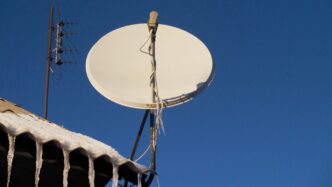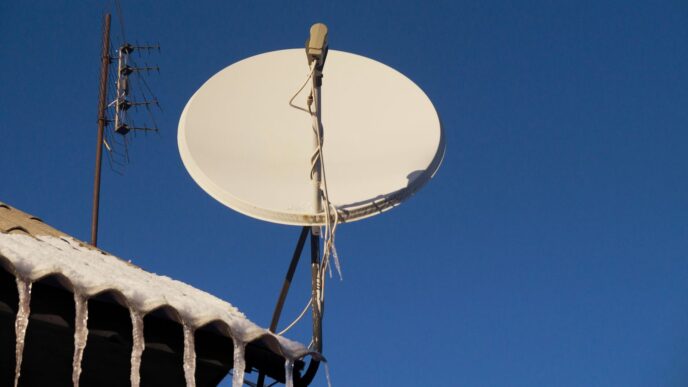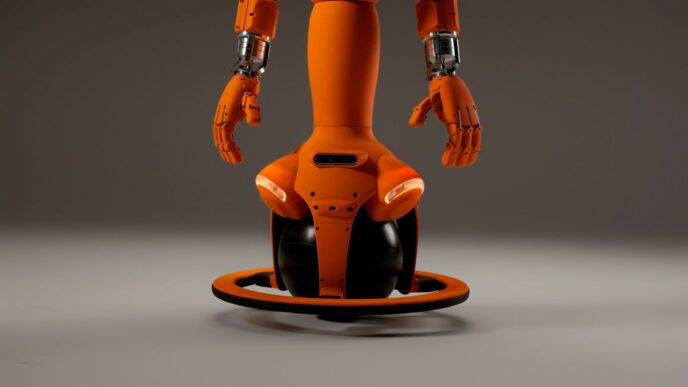So, Rocket Lab is buying another company. This time it’s Planetary Systems Corporation, or PSC for short. They make stuff that separates satellites from rockets, which sounds pretty important. This is their third buy in less than two years. It seems like Rocket Lab is really trying to do everything in space, not just the launching part. They’ve got a bunch of money from going public, and they’re using it to grab companies that have tech they like and trust. This PSC deal is for about $42 million plus some stock. It’s all about building up their own space systems business.
Key Takeaways
- Rocket Lab is acquiring Planetary Systems Corporation for $42 million and company stock.
- PSC specializes in spacecraft separation systems, with over 100 successful missions.
- This acquisition helps Rocket Lab expand its integrated space services, covering more than just launches.
- The deal is part of Rocket Lab’s strategy to grow by buying companies with proven, reliable technology.
- PSC’s hardware, including their Canisterized Satellite Dispenser, will be used within Rocket Lab’s Space Systems division.
Rocket Lab Acquires Planetary Systems Corporation
Strategic Acquisition Bolsters Rocket Lab’s Space Systems
So, Rocket Lab just announced they’re buying Planetary Systems Corporation (PSC). It’s a pretty big deal, a mix of cash and stock, coming in at $42 million plus a bunch of shares. This move really beefs up Rocket Lab’s space systems side of things. They’re aiming to be more than just a launch company; they want to be a full-service space provider, and buying PSC fits right into that plan. They’re planning to use PSC’s hardware across their own Space Systems division, which includes their Photon satellite buses and other components. This is their third acquisition in about a year and a half, showing they’re serious about growing through smart purchases. They previously picked up Advanced Solutions, Inc. for flight software and Sinclair Interplanetary for hardware manufacturing. It seems like they’re building a whole suite of capabilities.
Deal Valued at $42 Million Plus Stock
The specifics of the deal are $42 million in cash, plus 1,720,841 shares of Rocket Lab’s common stock. There’s also a kicker: up to an additional 956,023 shares could be handed over based on PSC’s financial performance in 2022 and 2023. Based on Rocket Lab’s stock price around the announcement date, the total value was around $81.4 million. This acquisition is being funded by the $750 million Rocket Lab raised when they went public on NASDAQ. It’s a significant investment, but it clearly aligns with their strategy to bring more capabilities in-house.
Third Acquisition in 18 Months for Rocket Lab
This PSC purchase marks Rocket Lab’s third major acquisition in roughly the last 18 months. It follows closely on the heels of their purchase of Advanced Solutions, Inc. (ASI), a company focused on flight software, simulation, and guidance systems, which cost them $40 million. Before that, they acquired Sinclair Interplanetary, a maker of space hardware. It’s clear Rocket Lab is on a buying spree, picking up companies with technology they trust and use, aiming to create a comprehensive set of capabilities they can deploy across their own projects and potentially for other customers too.
Planetary Systems Corporation’s Expertise in Separation Technology
Planetary Systems Corporation, or PSC as they’re often called, has really made a name for themselves in the space game. They’re all about making sure satellites get where they need to go, safely, once they’re up there. Think of them as the folks who design the reliable way to let go of a satellite from a rocket. It’s not as simple as it sounds; you need systems that work perfectly every single time.
Pioneering Spacecraft Separation Systems
PSC has been around for a while, building up a solid reputation for their separation gear. They’ve developed a bunch of different ways to get spacecraft off their ride to space. Their systems are designed to be super dependable, which is obviously a big deal when you’re dealing with expensive satellites and rockets. It’s a pretty specialized field, and PSC has been at the forefront of creating these critical components.
Proven Track Record with Over 100 Missions
What really stands out about PSC is just how often their hardware has been used, and how well it’s performed. We’re talking about more than 100 missions where their separation systems have been deployed. That’s a lot of launches, and across all of them, they’ve had a perfect success rate. That kind of history gives you a lot of confidence in what they do. It means their designs have been tested in real-world conditions, time and time again, and they haven’t failed.
Canisterized Satellite Dispenser Technology
One of PSC’s key products is their Canisterized Satellite Dispenser, or CSD. This isn’t just a simple ejector; it’s a smart piece of equipment. It not only separates the satellite from the launch vehicle but also keeps it protected during the whole process. This is especially important for smaller satellites that might be more sensitive. The CSD allows multiple satellites to be packed into a single dispenser, which can then be neatly deployed one by one. It’s a clever way to manage the payload and make sure each satellite gets its own clean departure from the rocket.
Synergies and Future Integration
So, Rocket Lab is buying Planetary Systems Corporation, and it sounds like a pretty smart move. They’re basically bringing together two companies that do different but related things in the space world. Rocket Lab already builds rockets and satellites, and PSC makes the bits that let satellites get off the rocket safely.
This deal means Rocket Lab can now handle more of the whole process, from building the rocket to getting the satellite into its own orbit. It’s like buying a specialized tool you need to finish a big project. They think this will help them speed things up and maybe even lower costs for their customers.
Here’s what they’re hoping to get out of it:
- Faster Production: By combining their manufacturing and PSC’s separation tech, they can probably make things quicker. Think about it, if you need a specific part, it’s easier if the company that makes it is right next door, or even in the same building.
- Making More Stuff: PSC has been around for a while and has a good track record, with over 100 missions using their hardware. Rocket Lab wants to use PSC’s experience to build more of their own satellite components and buses, like the Photon satellite bus. This acquisition is part of a bigger plan to grow their space systems business, which has seen some good revenue increases recently, like the 36% year-over-year jump reported in the second quarter of 2025.
- Saving Money: When companies work together, they can often find ways to cut down on expenses. Maybe they can share factories, buy materials in bulk, or combine some of their administrative tasks. This could mean lower prices for the people buying rides to space.
It’s all about making Rocket Lab a one-stop shop for space missions. They’ve been buying up other companies, like Advanced Solutions, Inc. and Sinclair Interplanetary, to build up their capabilities. This PSC acquisition fits right into that strategy, aiming to create a more complete service for anyone wanting to get something into orbit. It’s a big step towards becoming a fully integrated space company, which is a pretty ambitious goal. You can read more about their financial performance and growth plans on Rocket Lab’s investor relations page.
Financial and Strategic Implications of the Acquisition
So, Rocket Lab snagged Planetary Systems Corporation (PSC) for a cool $42 million in cash, plus a bunch of their stock. They’re also tossing in more stock if PSC hits certain financial targets in 2022 and 2023. This whole deal is being funded by that big chunk of money Rocket Lab raised when they went public on NASDAQ. It really shows they’re serious about becoming more than just a launch company; they want to be a one-stop shop for space stuff, from getting satellites into orbit to building the satellites themselves.
This is Rocket Lab’s third acquisition in about a year and a half. They recently picked up Advanced Solutions, Inc., which does flight software, and before that, Sinclair Interplanetary, a hardware maker. It seems like they’re building a whole suite of capabilities.
Here’s a quick breakdown of what this means:
- Vertical Integration: Rocket Lab is clearly aiming to control more of the space mission process. By bringing PSC’s separation systems in-house, they can better manage production and supply chains.
- Cost Savings: Combining operations and scaling production should lead to lower costs for customers down the line. Think about it, fewer outside suppliers usually means better pricing.
- Expanded Services: Adding PSC’s reliable hardware means Rocket Lab can offer a more complete package to its clients, making them a more attractive partner for a wider range of space missions. They’re really trying to build out their Space Systems division.
It’s a smart move, especially with the money they have. They’re not just buying companies; they’re buying specific technologies and expertise that fit their bigger picture. It’s all about creating a more robust and self-sufficient space ecosystem.
Planetary Systems Corporation’s Market Presence
Planetary Systems Corporation (PSC) has really made a name for itself in the space industry, particularly with its hardware for separating spacecraft from rockets. It’s not just some small startup; their gear has been used in over 100 missions, which is pretty impressive. They’ve got a 100% success rate with their separation systems and satellite dispensers. That kind of reliability is exactly what you want when you’re sending expensive equipment into orbit.
PSC’s technology isn’t limited to just one or two launch providers. Their hardware has been integrated with rockets from major players like SpaceX and United Launch Alliance here in the US. They’ve also worked with international companies such as Arianespace and the Japan Aerospace Exploration Agency. This global reach shows they can meet the needs of a wide variety of customers and launch platforms.
One of their standout products is the Canisterized Satellite Dispenser. This system not only separates satellites from the launch vehicle but also keeps them safe during the ride up. It’s a smart piece of engineering that simplifies the whole process of deploying multiple small satellites. It’s kind of like how solar water pump systems are becoming more popular for renewable energy solutions, showing a trend towards more efficient and reliable tech in different sectors solar water pump systems market.
Based in Maryland, PSC has built a solid reputation. The company continues to be led by its current CEO, Mike Whalen, which suggests a stable leadership structure moving forward. This kind of stability is good for business, especially in a field that requires long-term planning and trust.
Rocket Lab’s Continued Growth Strategy
Acquisition of Advanced Solutions, Inc.
Rocket Lab has been busy building out its capabilities, and one big move was picking up Advanced Solutions, Inc. (ASI). This company is based in Colorado and is known for making flight software for spacecraft. It was a pretty significant deal, costing Rocket Lab $40 million. This move fits right into their plan to offer more than just launches; they want to be a one-stop shop for space missions.
Integration of Sinclair Interplanetary
Last year, Rocket Lab also brought Sinclair Interplanetary into the fold. They’re a company that makes hardware for space. By adding Sinclair, Rocket Lab is getting more control over the parts that go into their rockets and satellites. It’s all about making sure they have the best components available, and bringing that manufacturing in-house or under their direct control helps with that.
Focus on Best-in-Class Product Offerings
Basically, Rocket Lab is on a mission to gather the best technology and companies out there. They’re not just buying anyone; they’re looking for companies with products that are already proven and considered top-notch in their field. Peter Beck, the CEO, has mentioned they want to build a "cabinet of capabilities." This means they’re assembling a collection of really good companies and technologies that they can use for their own missions and also offer to other customers. It’s a smart way to grow and make sure they’re always offering high-quality solutions.
Wrapping Up the PSC Acquisition
So, Rocket Lab is buying Planetary Systems Corporation. It’s a pretty big deal, costing them $42 million in cash plus a bunch of their stock. PSC makes those important parts that let satellites safely leave rockets, and they’ve got a solid track record with over 100 missions. This move fits right into Rocket Lab’s plan to do more than just launch things; they want to be a one-stop shop for space stuff. It’s their third company buy in about a year and a half, showing they’re serious about growing their capabilities. It’ll be interesting to see how PSC’s tech gets used across Rocket Lab’s own satellite projects and with other customers too.
Frequently Asked Questions
What is Rocket Lab doing with Planetary Systems Corporation?
Rocket Lab, a company that launches rockets and builds space stuff, is buying another company called Planetary Systems Corporation (PSC). PSC is good at making special equipment that helps satellites separate from rockets safely. This deal is for about $42 million in cash plus some of Rocket Lab’s stock.
Why is Rocket Lab buying PSC?
Rocket Lab wants to offer more complete space services, not just launching. By buying PSC, they can use PSC’s reliable separation systems and dispensers in their own rockets and spacecraft. This helps Rocket Lab make things faster, produce more, and lower costs for their customers.
What kind of technology does PSC have?
PSC is known for its systems that help satellites break away from rockets. They have a special product called a ‘Canisterized Satellite Dispenser’ that not only separates satellites but also keeps them safe during the rough ride of a launch. Their equipment has been used successfully in over 100 space missions.
Is this the first company Rocket Lab has bought recently?
No, this is actually Rocket Lab’s third company purchase in about a year and a half. They recently bought a company that makes flight software and another that makes space hardware. They are building up their capabilities by adding these specialized companies.
How will this deal help Rocket Lab’s customers?
By combining PSC’s technology with Rocket Lab’s services, customers can expect things to be made and delivered more quickly. Rocket Lab also believes they can make things cheaper, which means better prices and service for the companies that use their rockets and space systems.
Where is PSC located and who leads it?
Planetary Systems Corporation is based in Maryland. The current CEO, Mike Whalen, will continue to lead the company after the acquisition. This means the experienced team at PSC will still be in charge of their operations.








